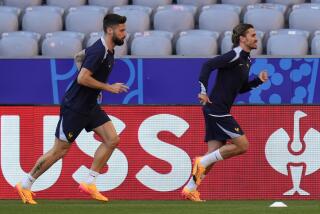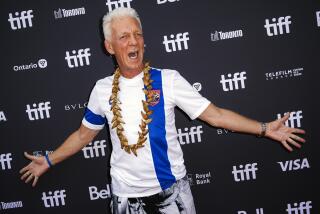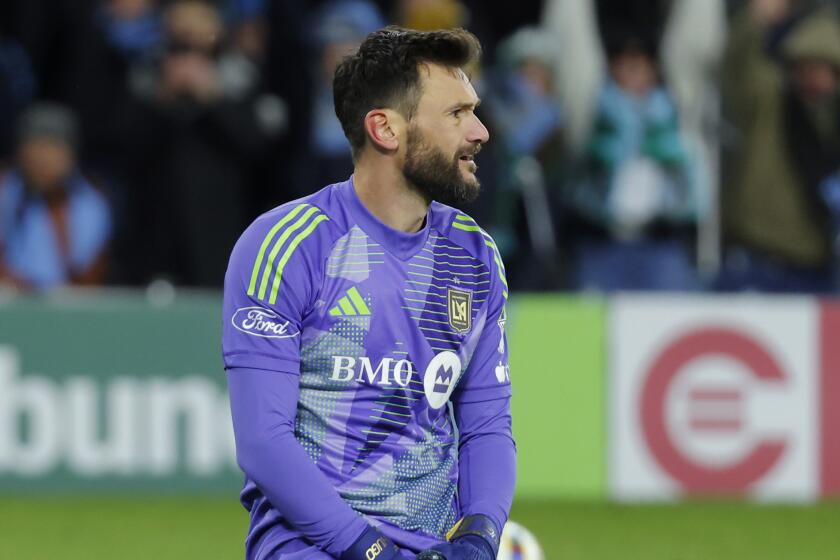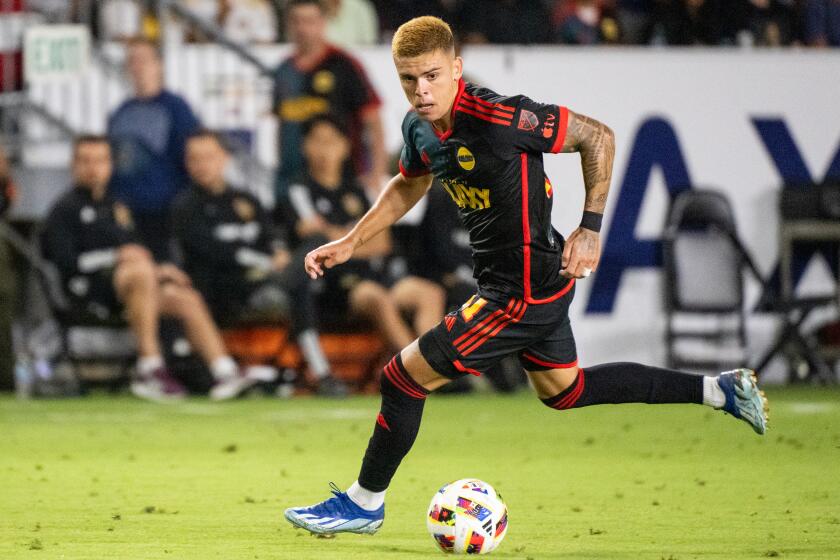World Cup: Iceland comfortable with Cinderella title, but wants to prove it belongs in the World Cup

Even Disney couldn’t have written Iceland’s World Cup story better.
Start with a country that’s buried in ice and snow for more than half the year, one with fewer people than Anaheim and a soccer league long more amateur than professional. From that, pull together a national team managed by a part-time dentist and driven by potential no one outside the locker room could see, then watch it become the smallest nation ever to qualify for a World Cup.
There’s just one problem with that narrative: Like “Cinderella,” it’s a fairytale -- albeit one the team has gone along with because, well, it’s made Iceland the tournament’s lovable underdog.
“Let’s keep it that way,” Heimir Hallgrímsson, the dentist-turned-coach, said with a smile. “I think everybody will support Iceland in Russia. Everybody will be on our side.”
Full coverage: 2018 World Cup »
Maybe. But if they’ve come to cheer the World Cup’s version of Leicester City, a scrappy team of true believers who are far better collectively than individually, then they’re cheering the romance more than the reality. Because Iceland didn’t get here overnight, nearly winning an invite to soccer’s biggest party four years ago, then proving that wasn’t a fluke by drawing Portugal and beating England to reach the quarterfinals of the 2016 Euros.
“We can never go back on saying ‘Oh, we’re too small to go to the World Cup’ or ‘We’re too small to get the Euros.’ Because we’ve done it,” said midfielder Aron Gunnarsson, the team’s captain. “And once you do it together, anything is possible in football.
“You don’t get tired of the questions. It’s how it is. We know where we stand. We know what we are. You have to earn the right to play football. And that’s what we are doing at the moment.”
With a population of 350,000 spread over an area about the size of Kentucky, Iceland, a volcanic rock rising from the frigid waters of the North Atlantic, is the most sparsely populated country in Europe. And its national sport is team handball -- Iceland finished second in the 2008 Olympic tournament -- not soccer.
But that may be changing. In a World Cup cycle in which well-funded and well-organized programs in Italy, the Netherlands and the U.S. failed to find their way to Russia, Iceland got there through planning, perseverance and faith.
The planning started more than two decades ago, when officials from the national soccer federation visited a Norwegian training center just inside the Arctic Circle. There, Norway has been able to develop several players good enough to compete in top European leagues so Iceland copied the model, working with local officials to build indoor soccer complexes across the country.
It also overhauled its coaching programs and by 2011, Iceland was one of eight countries to qualify for Europe’s U-21 championships. Seven players from that team, including Gunnarsson, will be on Iceland’s roster in Russia.
Convinced it was headed in the right direction, Iceland turned its national team over to Swedish coach Lars Lagerback and hired Hallgrímsson, a small-town dentist and former women’s coach, as his assistant. The pair nearly got Iceland into the 2014 World Cup, losing a two-leg playoff to Croatia for the final spot in Brazil.
Two years later, its stunning Euro run captured imaginations both at home -- its quarterfinal with France was watched on TV by 99.8 of Icelanders -- and abroad, where the “Viking Clap” became as ubiquitous as the “The Wave.” After the tournament, Lagerback stepped down, turning the team over to Hallgrimsson full time.
His patients would have to find another dentist.
Now, just two players on Iceland’s roster still play in the country’s domestic league, the rest are spread across the continent with first-division teams in England, Italy, the Netherlands, Belgium, Russia, Germany, Denmark, Bulgaria, Norway and Sweden.
But if Iceland has come a long way in a short time, the best measure of its progress could come in its World Cup opener, where it will face Lionel Messi and Argentina in Moscow.
When the draw was announced last winter, Hallgrimsson welcomed the match, calling it “a little bit of a romantic feeling to play Argentina in the first game.”
Neither he nor his players have changed their mind since because while fairytales are nice, sometimes reality is even better. And if Iceland is truly going to make its mark in Russia, it might as well start with the first game.
“We go into the competition with the belief that we deserve to be there, like anyone else. Why should we think something else?” Hallgrimsson said. “We have belief in ourselves. We know what we are about.
“And that’s the strength of the squad: They know exactly what we’re about. We’re not trying to be something else. And in the end that will be our strength.”
kevin.baxter@latimes.com | Twitter: @kbaxter11








